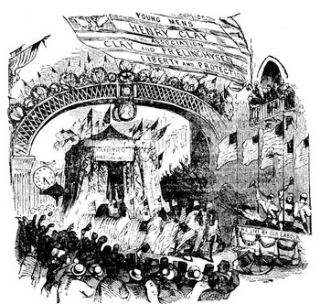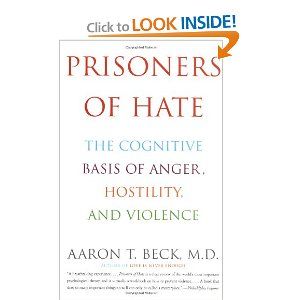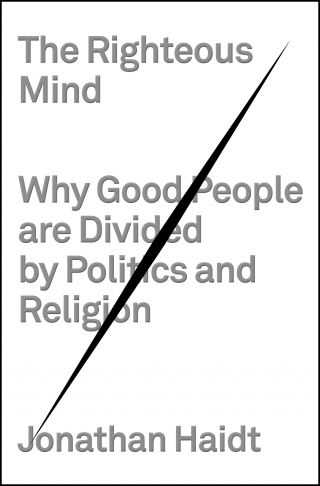Politics
The Unsavory Psychology of Two-Party Politics
Having two political parties in the US brings out some of our worst tendencies.
Posted September 26, 2012

If you have been out of high school for several decades (as I have), you might be a little fuzzy on what they said in your American Government class about the American two-party political system. My memories on that topic are certainly hazy. I was pretty sure that the Constitution did not stipulate anything about political parties and that Washington was not a member of any political party. The names "Federalist" and "Whig" came to mind, although I didn't remember what they stood for. I also had a vague recollection that the ideology of Republicans while Lincoln was in office resembled the ideology of modern Democrats, while Democrats of the Civil War era looked more like modern Republicans. At some point in the 1900s these two parties flip-flopped, ideologically, although I am unclear about when and why this happened.

An hour or so on the Internet confirmed some of my memories and corrected others. Of central interest to me was verification that the U.S. Constitution does not require any particular political party structure. As I read about the evolution of political parties in the U.S., I became curious about why we have settled in on the present two-party system, especially when research indicates that a majority of Americans agree that there should be a major third party beyond the Republican and Democratic parties. Then it struck me: Perhaps a two-party system strikes a chord with our evolved tendency to classify people into one of two categories, in-group vs. out-group, or us vs. them. Research indicates that the bias toward categorizing members of our species into us vs. them has been in the primate line for at least 25 million years. The two-party system nicely fits this bias—you are either a member of my in-group (us) or you are an outsider (them). A system with three or more parties is too complicated for our primitive bias toward us vs. them thinking.

"So what?" you might ask. "What's wrong with dividing the world into two categories, good, right-thinking people like us, or bad, wrong-thinking people like them?" Well, for starters, such a simplistic lumping of people into two categories denies the complexity and uniqueness of each human being. It represents a distortion of reality called polarized thinking by Aaron Beck and other cognitive-behavioral therapists. This distortion is no harmless mistake. Because polarizing the world into us vs. them often entails a moral judgment (we are good; they are bad), Beck argues that this distortion has "led to wife-beating, group rape, the Salem witch trials, the Oklahoma City bombing, the Holocaust, and genocide in Cambodia, Turkey, and the Soviet Union."
A term I like to use to describe polarized thinking that is intertwined with black-and-white thinking about good and evil is Manichean thinking, after the ancient Persian religion that viewed the world as a struggle between the forces of light and darkness. In my hour of Web-browsing, I was pleased to find at least one writer who used exactly that term to describe the development of the U.S. political system. In the words of that writer, "If you really have a very simplistic and unrealistic view of the market economy, of the political system, of how the world works, then I guess demonization of your opponents and the Manichean perspective is of enduring appeal."
A number of folks have expressed optimism about curing the world of Manichean thinking. Aaron Beck hopes that awareness of limiting thoughts such as polarized thinking can lead to a reduction in such thoughts, and therefore a reduction in the negative consequences that follow limiting thoughts. The writer of the aforementioned blog piece on Manichean thinking and U.S. politics recommends teaching "a systemic view of the world and its interlocking economic and political systems." At the 1997 Gordon W. Allport Centennial Symposium on Prejudice and Intergroup Relations, Marilyn B. Brewer presented an address in which she argued that attachment to in-groups does not necessarily entail hostility toward out-groups. Is such optimism warranted?
I'm doubtful. Even Brewer herself notes, "However, the very factors that make ingroup attachment and allegiance important to individuals also provide a fertile ground for antagonism and distrust of those outside the ingroup boundaries. The need to justify ingroup values in the form of moral superiority to others, sensitivity to threat, the anticipation of interdependence under conditions of distrust, social comparison processes, and power politics all conspire to connect ingroup identification and loyalty to disdain and overt hostility toward outgroups."

Even closer to home, I have been following with part-fascination, part-horror, observations of Manichean thinking in social psychologists. If any group of individuals should be aware of (and therefore immune to) cognitive biases that lead to moral prejudice, it would be highly-educated social psychologists. Nonetheless, it seems that social psychologists cannot put aside their own liberal perspective when analyzing the psyche of political conservatives—even when a fellow social psychologist like Jonathan Haidt tries to help them see the problem. I belong to the Society for Personality and Social Psychology myself and therefore subscribe to the SPSP listserv. Last month there was a lengthy discussion on that list about the possible biases of social psychologists against conservatives, complete with references to published studies with actual data. What surprised me (or maybe didn't surprise me) was the reluctance of social psychologists within that discussion to acknowledge the existence of a problem. So I wouldn't count on psychology to reduce Manichean thinking in the American political scene.
What might be a step toward a solution? Call me crazy if you like (it wouldn't be the first time it's happened), but I would like to see the abolition of political parties altogether. Amend the Constitution to outlaw them. Yes, I know that this idea totally flies in the face of our urge to form coalitions to increase power, to identify with a group that we believe will provide strength in numbers. I also know from my hour of browsing that one reason parties were formed was the hope that they would better represent the interests of the masses than the interests of the elite. My reply is, the party approach simply has not worked, and I do not think it will ever work. Think about it: how well has your own political party and its chosen leaders advanced your own personal interests? (Answer: your own power will always be diluted by a group, for reasons explained by Harry Browne in his chapter on the Group Trap in How I Found Freedom in an Unfree World.) How successfully has the party system kept the elite from controlling Washington and the rest of the country? (Answer: nearly half the members of Congress are millionaires. I'll resist engaging in a diatribe about the influence of the wealthy and special interest groups in Washington.)
The only advantage to political parties is that their existence saves us time by allowing us to vote straight Democratic or straight Republican, instead of wasting time actually studying individual candidates' strengths and weaknesses to make an informed decision about who might be the best candidate for any position.
Seriously, thinking in terms of political parties instead of individuals is lazy. You cannot depend on your political party to get you what you want. The two-party political system does not fully represent the diversity of interests among individuals in our country and encourages Manichean thinking in which people in each party demonize the members of the other party. We end up with mud-slinging during campaigns and gridlock after the elections.
Maybe outlawing political parties is not so crazy after all.





